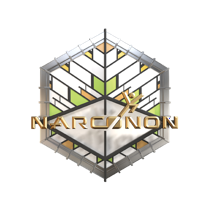Addiction in the Work Force—Raising Awareness of Substance Abuse in the Working Class Industries

Drug and alcohol addiction has become a constant, regular presence in American society. Sometimes it feels as though everywhere we look, in every social circle or group we are involved with, there is someone who struggles with some kind of habit. According to the National Survey on Drug Use and Health, there are 19.7 million people in the U.S. who have a drug habit or alcohol addiction.
The population of the United States is about 327 million. So if almost 20 million people are addicted to drugs and alcohol, all you have to do is know 16 people to know someone who is addicted to drugs and alcohol. Do you know at least 16 people? I think it’s safe to say that most of us do.
With the sheer prevalence of addiction in mind, it can feel as though substance abuse is around every corner. But as far as employment and the workplace goes, specific industries seem to attract addiction and drug use far more than others. You may think you know someone at work who is addicted to drugs and alcohol. And that might be true. But depending on what line of work you’re in, you might know far more than one person who is hooked on substances, whether they make their habit apparent or not.
Industries with the Most Substance Abuse and Why
Listed below are the top industries which seem to attract employees who misuse drugs and alcohol. Our goal here is to understand which industries attract or even create addicts and to innovate ways to help those individuals and to free those industries from addiction in the workforce:

- The Hospitality (Accommodation) Industry. Comprised of hotels, resorts, motels, and cruise liners, this industry attracts drug use and drinking among its workers in increasing numbers. According to Confirm Biosciences, 10 percent of hospitality employees admitted to heavy or constant alcohol use. Nine percent admitted to illicit drug use in the last month. This type of job scene is often not that well supervised, and employees are left to work alone overnight. That is a job environment where it’s easier than most to conceal an addiction.
- The Fishing Industry. The Boston Globe published an interesting article in 2017 about the prevalence of drug use among East Coast fishermen. Long work hours, hazardous working conditions, terrible weather, and grueling physical labor can often lead to drug use, especially opioid use to numb physical pain and get high all at once. The article talked about how, during a random security search in New Bedford, Massachusetts, 6 out of 11 of the searched fishing boats had heroin on them.
- The Mining Industry. According to the National Drug-Free Workplace Alliance, 17 percent of workers in the mining industry are addicted to alcohol. Five percent of them are hooked on drugs. Mining is a job that is known for being physically brutal and for not offering nearly enough compensation and benefits for the work that is done.

- The Construction Industry. According to the National Drug-Free Workplace Alliance, 16 percent of construction workers misuse alcohol and 11 percent misuse drugs. The construction industry has a high turnover rate, a high risk for physical injury and resulting pain, and sometimes poor working conditions.
- The Restaurant Industry. Restaurants, of course, usually have alcohol present. Add to that long work hours, high turnover rates and very few background checks or lengthy hiring processes and restaurants become a target for addicts—particularly addicts who are looking for quick work and “No questions asked.” Again, according to the Confirm Biosciences group mentioned above, 15 percent of restaurant workers misuse alcohol, and 9 percent use illegal drugs at least once per month.
- Nursing. This one might be the most surprising of them all. But sure enough, the field of nursing is also one of the top areas for addiction. Quoted from the journal Nursing 2019, “The American Nurses Association suggests that up to 10% of the RN workforce may be dependent on drugs or alcohol.” The article goes on to state that “Between 14% and 20% of all RNs in the United States may have a problem with dependence or abuse of drugs and/or alcohol, which likely addresses the suspected prevalence of unreported substance dependence cases. One out of every 5 to 7 RNs is affected by substance abuse.”
Why do these industries seem to attract addiction? What do they all have in common?
It is clear that all of the above job sectors are stressful, physically demanding, and not always as remunerative as they should be. High turnover rates and a lack of background checks can be factors too. Also, some of the jobs have easy access to substances (restaurants to alcohol and nursing to opioid painkillers).
What Do We Do About It?
We can tackle this problem from two approaches. On the one hand, we need to ensure that people who struggle with addiction get help. For those who work in the above industries, they need to be extra observant and prepared to help coworkers who might be struggling with a habit.
But we also need to address the industries themselves. It’s not just that the above industries attract addicts, but they also make addicts. We have to improve the jobs in America. If jobs like mining, construction, fishing, restaurants, and nursing are so difficult, physically taxing, stressful, or so unremunerative that employees would turn to drugs and alcohol to cope, there is something very wrong with those industries.
We understand that there are several factors which play into addiction and that it’s never “just the person’s job” that made them an addict. Addiction is a multifaceted crisis that weighs heavily upon those affected by it, creating a shocking burden of accumulated traumas. However, one’s workplace can be a massive part of that burden. Let’s change that.
Sources:
- https://www.samhsa.gov/data/report/2
- https://www.confirmbiosciences.com/industries/hospitality/
- https://www.bostonglobe.com/metro/2017/04/17/state-fishing-fleet-confronts-opioid-problem/X41GzDtelTMoOoHm4FVe8L/story.html
- https://www.ndwa.org/drug-free-workplace/industry-statistics/
- https://journals.lww.com/nursing/Fulltext/2015/03000/The_sneaky_prevalence_of_substance_abuse_in.6.aspx
Reviewed and Edited by Claire Pinelli, ICAADC, CCS, LADC, RAS, MCAP


